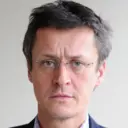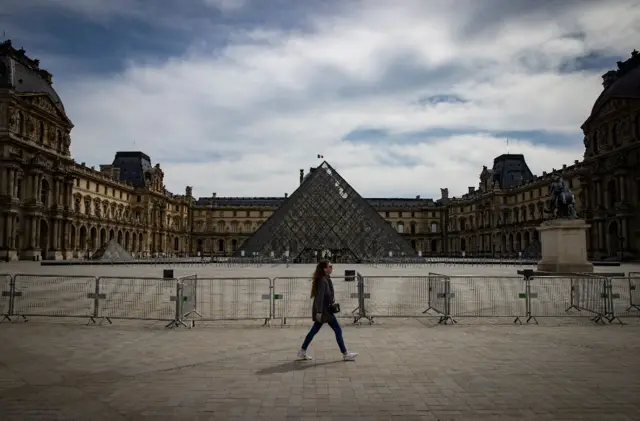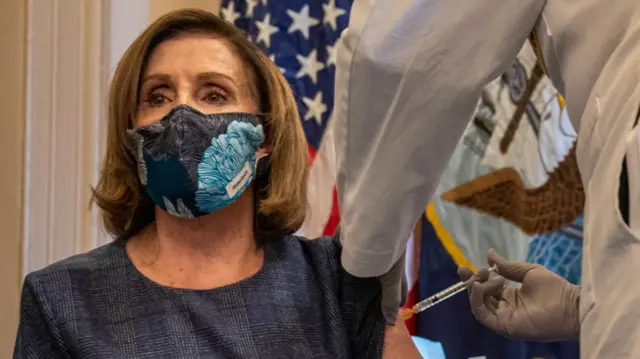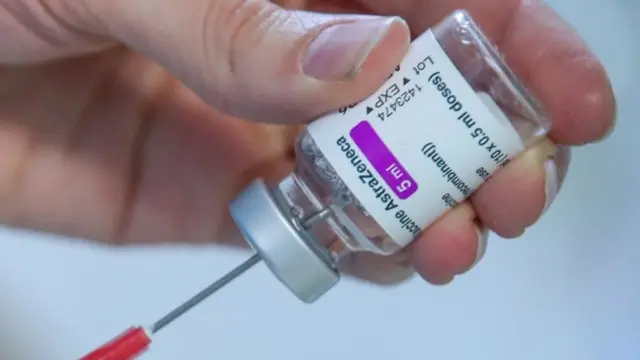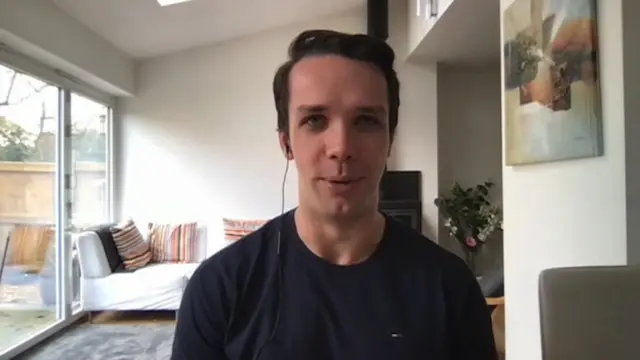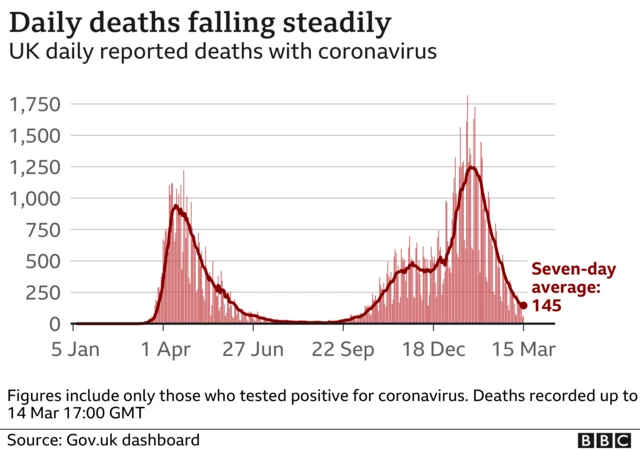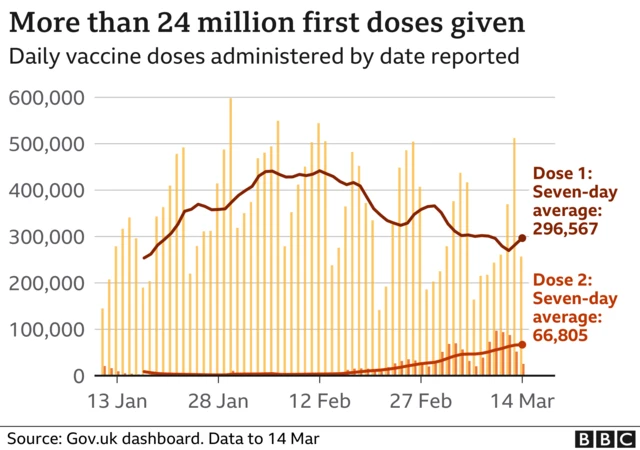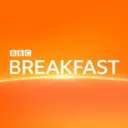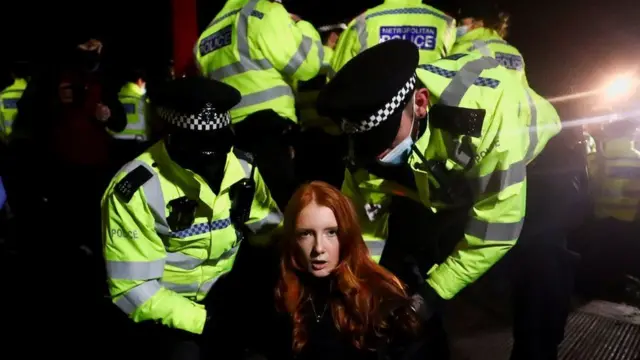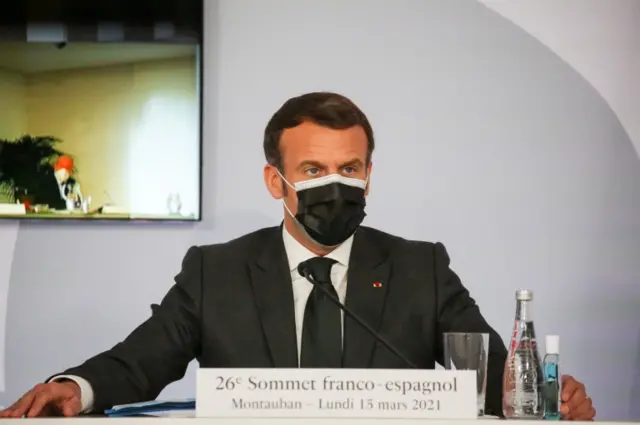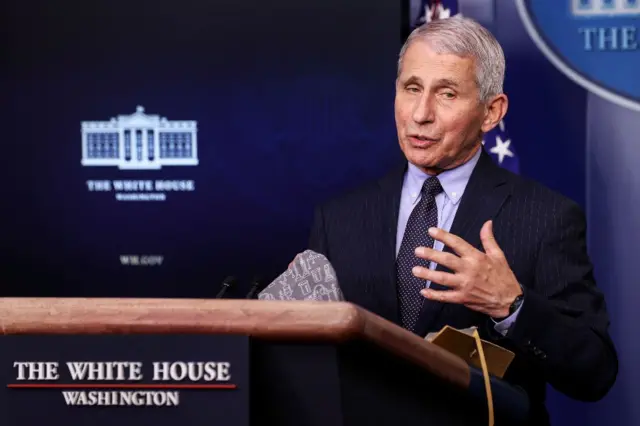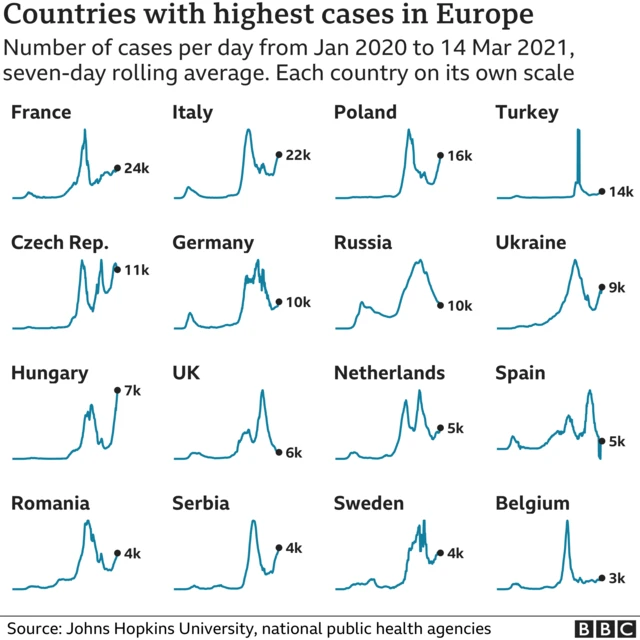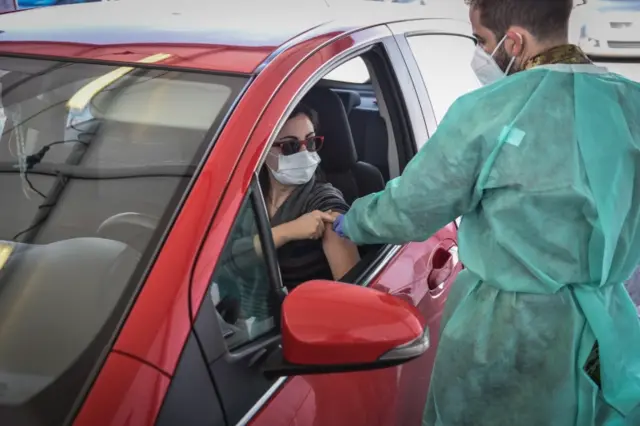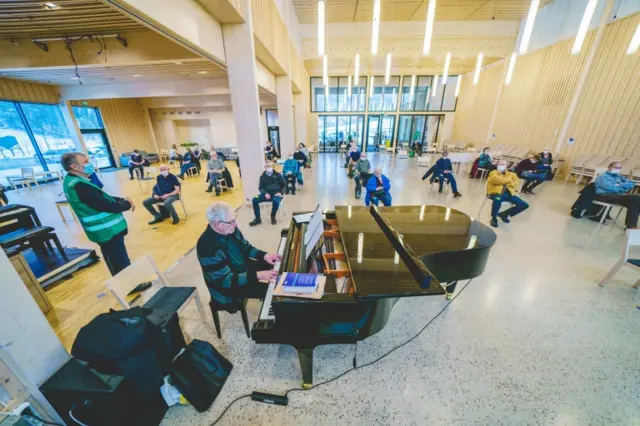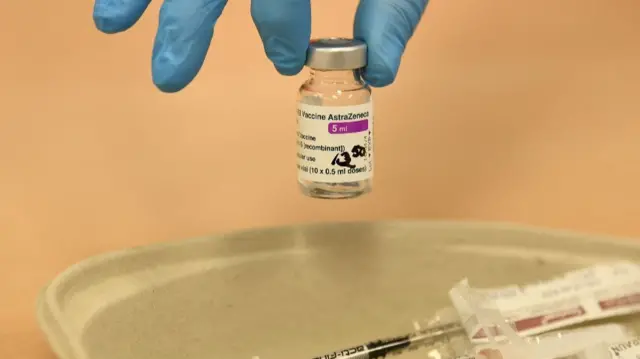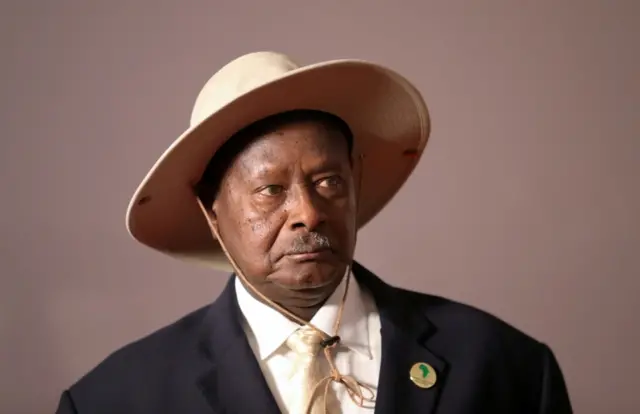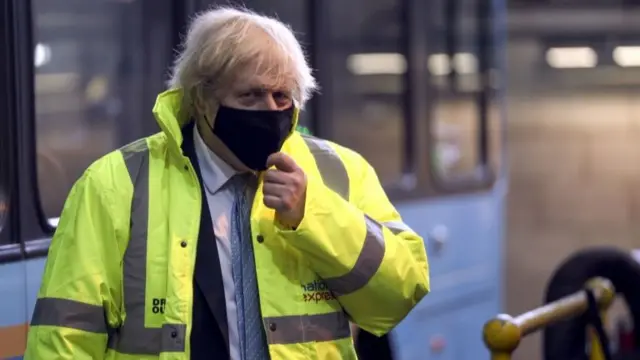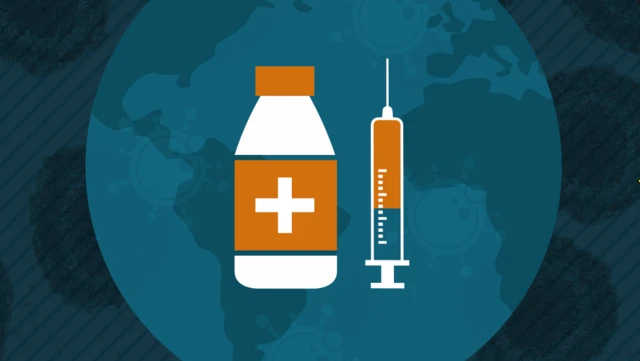That's all for todaypublished at 17:24 GMT 15 March 2021
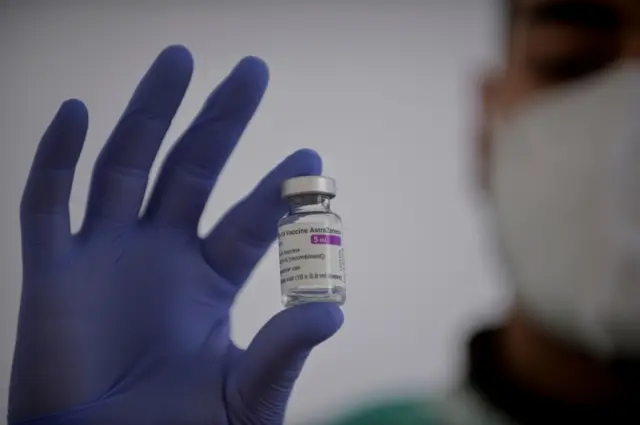 Image source, Reuters
Image source, ReutersWe're pausing our live coverage of the coronavirus pandemic for now. Before we go, here are Monday's main stories again:
- Several large EU countries - Germany, France and Italy - have halted their roll-outs of the Oxford-AstraZeneca vaccine, after a series of incidents in Europe involving blood clots
- Other European nations, including the Netherlands, Denmark, Norway and the Republic of Ireland, paused their roll-outs of the Oxford vaccine earlier
- The World Health Organization says there's no evidence that the incidents are caused by the vaccine. It says it's reviewing reports linked to the jab but that it's important that vaccinations continue
- Cabinet ministers and other senior officials in the UK have told the BBC's Laura Kuenssberg that Boris Johnson should have been tougher last autumn to prevent more coronavirus deaths
- White House chief medical adviser Dr Anthony Fauci has warned that the US is "not in the end zone yet", and that it shouldn't make the same mistakes as Europe
